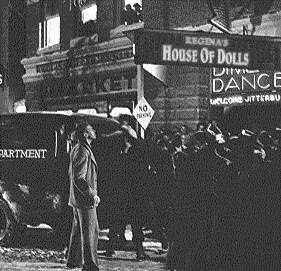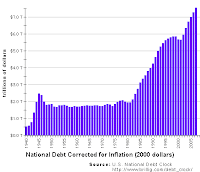 Meeting Resistance
Meeting Resistance is a new documentary making waves about the nature of the resistence to the US invasion of Iraq. It debuts as our American president warns of WWIII if Iran tries to build a nuclear power electricity plant -- though at the same time India is to be given actual nuclear material even after refusing to sign the
Nuclear Nonproliferation Treaty along with Israel, Pakistan, and North Korea. But what can you expect when the UN Security Council, the world's top arms dealers, is really a
protection racket? Penny-ante games by regional drug lords and other gangstas pale in
comparison.
Bush's only excuse for the war on Iraq is
al-Qaeda, whose leaders roam about in
other countries while we attack relatively innocent people at a high cost to soul and treasury. Or at least the American children's treasury, which Asian and European lenders will be waiting to demand when most manufacturing and programming jobs are finally offshored. Maybe the idea is that nothing matters but short run profit now that oil production has peaked.
In this light, globalization makes no sense, especially for the food security, since by the time the New World Order is in place, electric power and shipping resources to run it will be scarce. Too bad we didn't put that cool
trillion into alternative energy resources!
Anyway
, it's interesting to note that the
"estimated number of full-time al-Qaeda-in-Iraq fighters is 850 or 2-5% of the Sunni insurgency, according to Malcolm Nance, author of The Terrorists of Iraq, who has worked with military and intelligence units tracking al-Qaeda inside Iraq." (from
Launching Brand Petraeus). There more on this at Washington Monthly's
The Myth of AQI: the military's estimation of the threat is alarmingly wrong by a former Iraq correspondent for the
Stars and Stripes newspaper (interviewed on
Counterspin). There are additional details in Dan Froomkin's Washington Post article
Bush's Baghdad Mouthpiece.
There's more video of
Meeting Resistance at
Crooks and Liars and
Democracy Now.

To put the threat in perspective, if all the suicide bombers blew themselves up at once they still would not pose a threat to the survival of the USA.
The real danger is that our fate is almost entirely in our own hands in the form of arms and poison-making capability. Reminds me of a scary old song by the well-designed
Savage Republic: "The Crisis of our Country is not caused by External Forces... The Danger Lies Within..."
 In SADAT'S DAT, Adam Curtis revives a 1982 documentary on Egypt, which noted that food shortages and prices played a big role in Anwar Sadat's downfall. And of course the vision thing on our end. You'll have to visit his BBC website to see the doc Why Was Cairo Calm?
In SADAT'S DAT, Adam Curtis revives a 1982 documentary on Egypt, which noted that food shortages and prices played a big role in Anwar Sadat's downfall. And of course the vision thing on our end. You'll have to visit his BBC website to see the doc Why Was Cairo Calm?













